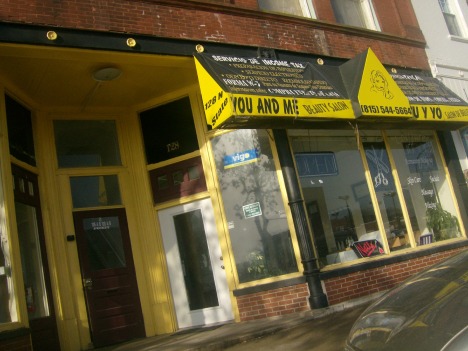The letters make clear that the Vatican, and the Pope’s personal representatives, put protection of the Church before the protection of children. It instructed bishops in two different parts of the world not to report known abusers to the police or release files.
We reproduce these letters in their entirety below so that you can make up your own mind about them:
Apostolic Nunciature In Ireland
N. 808/97
Dublin, 31 January 1997
Strictly Confidential
Your Excellency,
The Congregation for the Clergy has attentively studied the complex question of sexual abuse of minors by clerics and the document entitled “Child Sexual Abuse: Framework for a Church Response”, published by the Irish Catholic Bishops’ Advisory Committee.
The Congregation wishes to emphasize the need for this document to conform to the canonical norms presently in force.
The text, however, contains “procedures and dispositions which appear contrary to canonical discipline and which, if applied, could invalidate the acts of the same Bishops who are attempting to put a stop to these problems. If such procedures were to be followed by the Bishops and there were cases of eventual hierarchical recourse lodged at the Holy See, the results could be highly embarrassing and detrimental to those same Diocesan authorities.
In particular, the situation of ‘mandatory reporting’ gives rise to serious reservations of both a moral and a canonical nature”.
Since the policies on sexual abuse in the English speaking world exhibit many of the same characteristics and procedures, the Congregation is involved in a global study of them. At the appropriate time, with the collaboration of the interested Episcopal Conferences and in dialogue with them, the Congregation will not be remiss in establishing some concrete directives with regard to these Policies.
To: the Members of the Irish Episcopal Conference – their Dioceses.
For these reasons and because the abovementioned text is not an official document of the Episcopal Conference but merely a study document, I am directed to inform the individual Bishops of Ireland of the preoccupations of the Congregation in its regard, underlining that in the sad cases of accusations of sexual abuse by clerics, the procedures established by the Code of Canon Law must be meticulously followed under pain of invalidity of the acts involved if the priest so punished were to make hierarchical recourse against his Bishop.
Asking you to kindly let me know of the safe receipt of this letter and with the assurance of my cordial regard, I am [sic]
Yours sincerely in Christ,
+Luciano Storero
Apostolic Nuncio
SACRA CONGRIGAZIONE
Roma, January 31 1984
PER IL CLERO
PROT. 172621/1
(Citare questo numero nella riposta)
Most Rev. Manuel D. Moreno, D.D.
Bishop of Tucson
192 South Stone Avenue
P.O. Box 31 Tucson,
Arizona 85702-0031
Your Excellency:
This Sacred Congregation wishes to respond to your questions relating to the case of the Reverend [redacted] a priest of your Diocese.
To the first question ("was the proper procedure followed, i.e. due process, in the case") we would reply in the negative. On the basis of the documentation sent to us, it would seem clear that Father should have removed from his pastorate immediately upon completion of the process outlined in n.20 of the Motu Proprio 'Ecclesiae Sanctae', of 1966. The signed testimonies about his drunkennes, outrageo[us] language, liberties with womes, etc, are too numerous and convincingly articulate to leave any dount that Father's ministry is both harmful and inefficacious and should, therefor[e] have been terminated long ago.
Nor was there any need for engaging in the so called "due process" procedures. Indeed, an Ordinary is not free to leave to the decision of any group of arbitrators such matters as the continuation or removal of pastors. The "due process" procedures have to do with challenges made against the decree of an Ordinary or the rules of a diocesan administrator, and never are they to supplant procedures established by and for the Church universal.
Bishop Moreno Page Two Jan. 31 1984
To the second question ("Should we allow or disallow civil lawyers from obtaining Father's personnel records from our Chancery files") we reply that under no condition whatever ought the afore-mentioned files be surrendered to any lawyer or judge whatsoever. In addition, we suggest that both the office of the Apostolic Delegate and the legal department of the United States Catholic Conference be informed of the request for Father [redacted]'s files so that all may begin preparing whatever resistance to this request may be necessary.
The files of a Bishop concerning his priests are altogether private; their forced acquisition by civil authority would be an intolerable attack upon the free exercise of religion in the United States; and we have no doubt that both Federal courts and public opinion would sustain us in this position.
[Margin note in handwriting: Who knows? I will not be so sure!]
Your Excellency should therefore make known immediately and with clarity that no priest's files will be sent to any lawyer or judge whatever. Clarity in this matter may be enough to move the good Catholic people whom Father [redacted] is suing from further pressing their demand.
We should be clear and resolute, for failure in this regard might initiate a movement toward a most unfavorable precedent in law and -no less importantly -'frighten and upset not a few priests whose files are perhaps less than flattering.
With sentiments of cordial esteem and every best wish, I remain
Faithfully in Christ
[Handwritten, said to be
Silvio Angelo Pio Cardinal Oddi Prefect of the Vatican's Congregation for the Clergy]




